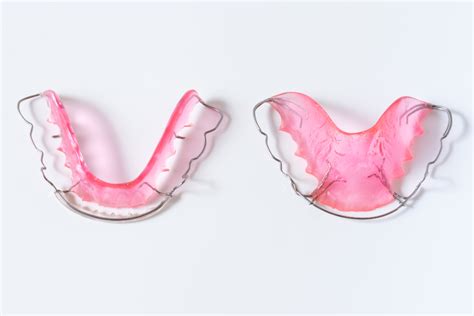Retainer Cleaning After Strep: What Your Dentist Wants You to Know
Strep throat is a common bacterial infection, and while antibiotics usually clear it up, the lingering effects can sometimes impact your oral health, particularly if you wear a retainer. Proper retainer hygiene is crucial at all times, but even more so after a bout of strep. This article explores the importance of meticulous retainer cleaning after a strep infection and answers common questions.
Why is Retainer Cleaning Extra Important After Strep Throat?
Strep throat, caused by Streptococcus bacteria, can leave traces in your saliva even after treatment. These bacteria, while generally eradicated by antibiotics, can potentially linger and colonize on the surface of your retainer. This creates a breeding ground for bacteria, potentially leading to reinfection or other oral health problems. Regular cleaning becomes vital in preventing these complications.
How to Clean Your Retainer After Strep Throat?
Your dentist will likely recommend a slightly more rigorous cleaning routine than usual following a strep infection. Here's a comprehensive approach:
Daily Cleaning:
- Brushing: Gently brush your retainer twice daily with a soft-bristled toothbrush and a non-abrasive toothpaste. Focus on all surfaces, including crevices.
- Soaking: Soak your retainer for at least 30 minutes daily in a retainer cleaning solution. Avoid using harsh chemicals or bleaches; look for solutions specifically designed for retainers. A simple solution of warm water and a mild dish soap can also work, but ensure it's thoroughly rinsed afterward.
Weekly Deep Cleaning:
- Baking Soda Paste: Once a week, create a paste of baking soda and water. Gently scrub your retainer with this paste to remove stubborn stains and plaque. Rinse thoroughly.
- Hydrogen Peroxide Soak (optional): You can occasionally soak your retainer in a diluted hydrogen peroxide solution (mix equal parts hydrogen peroxide and water). This can help disinfect and whiten the retainer, but avoid prolonged soaking as it can damage the material.
What if I Develop a Sore Throat Again After Strep Treatment?
If you experience a sore throat after completing your strep throat treatment, it's crucial to consult your doctor immediately. It could indicate a reinfection, a different infection, or a complication related to the initial illness. Similarly, if you notice any unusual changes in your mouth, such as inflammation, persistent bad breath, or discomfort when wearing your retainer, seek professional dental advice without delay.
Can I Use Mouthwash to Clean My Retainer?
While mouthwash can be part of your overall oral hygiene routine, it's generally not recommended for direct retainer cleaning. Some mouthwashes contain alcohol or other ingredients that can damage the retainer material over time. Stick to the recommended cleaning solutions and methods outlined above.
How Often Should I Replace My Retainer After Strep Throat?
The lifespan of a retainer depends on several factors, including the type of retainer and how well you care for it. While a strep infection doesn't automatically necessitate retainer replacement, it highlights the importance of maintaining impeccable hygiene. If you notice significant wear and tear, cracking, or discoloration, consult your orthodontist about replacement. They can assess the condition and advise you on the best course of action.
What are the Signs of a Retainer Infection?
Signs of a retainer infection can include persistent bad breath, a white film or discoloration on the retainer, discomfort or pain when wearing the retainer, and swelling or redness in your gums or mouth. If you observe any of these symptoms, contact your dentist immediately.
Conclusion
Maintaining impeccable retainer hygiene is always important, but it's especially crucial after battling strep throat. By following these cleaning guidelines and promptly addressing any concerns, you can safeguard your oral health and ensure the longevity of your retainer. Remember, regular check-ups with your dentist and orthodontist are essential for maintaining optimal oral health.

